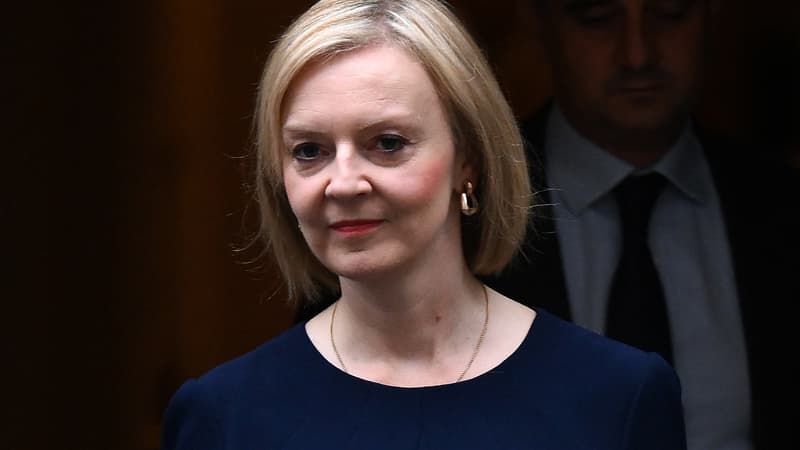Already weakened after barely a month in power, the British Prime Minister, Liz Truss, tried to regain supremacy this Wednesday on the last day of a hitherto chaotic Congress of the Conservative Party, undermined by internal dissension over the policy to follow to get out of the United Kingdom of the crisis.
“In these difficult times, we must act. I am determined to move the UK forward to get us out of the storm,” Mrs Truss launched, in an unannounced speech of just over half an hour in front of elected officials and campaigners from your party.
Wanting to renew a 12-year Conservative power at the helm of the country, the prime minister said she wanted to “end the cycle of weak growth” and stressed her goal of “growing the British economy.” “The status quo is not an option,” she insisted.
Trying to silence those who, even in her ranks, accuse her of being out of the game after barely a month in power, she once again insisted on her priorities: lower taxes, improve health services and fight against illegal immigration. Briefly interrupted by activists from the NGO Greenpeace protesting against the end of her government’s moratorium on fracking, Ms Truss also reaffirmed at length the UK’s support for Ukraine in its war against Russia.
“There is no shame in a leader listening”
The Prime Minister also again defended her “responsible” budget approach, while her “mini-budget” presented on 23 September to tackle the cost of living crisis drew widespread criticism for her debt-financed tax cuts, and provoked the pound sterling to fall. Pressured by its own majority, the government on Monday backed away from abolishing the top tax bracket, a move that crystallized opposition because it benefited wealthier taxpayers.
This change in attitude by the finance minister, Kwasi Kwarteng, weakened the prime minister, who defended herself by assuring that “there is no shame in a leader listening.” Will her speech to Congress be enough to reassert her authority, when Home Secretary Suella Braverman on Tuesday accused conservatives who openly criticized Liz Truss of launching a coup against her? ?
The stakes are high when former transport minister Grant Shapps, who backed ex-finance minister Rishi Sunak against Liz Truss in the Downing Street race, on Tuesday spoke of the danger of a vote of no confidence in Conservative MPs. “I don’t think that the parliamentarians, the conservatives, if they see that the polls continue like this, they will sit idly by,” he warned.
Caveat
Especially since a series of mined files are still waiting for the government and could fuel the revolt, such as the lifting of the moratorium on hydraulic fracturing or the abolition of the maximum tax bracket for the richest, whom Liz Truss refused to resign definitively, after having excluded him from his “mini-budget”.
But the revolt rumbles especially on the future revaluation of social benefits, on which the new Government does not consider itself bound by the commitment assumed by former Prime Minister Boris Johnson to raise them to the maximum of inflation. The warning came in particular from the Secretary of State responsible for relations with parliament, Penny Mordaunt, a former rival of Liz Truss in the race for Downing Street.
And several other voices were raised within the majority to remind Liz Truss not to stray too far from Boris Johnson’s agenda, which in December 2019 had earned the Conservatives an unprecedented victory since Margaret Thatcher (Prime Minister from 1979 to 1990).
The next elections are expected in less than two years and the Labor opposition, under the impetus of its leader Keir Starmer, more centrist than his predecessor Jeremy Corbyn, emerged reinvigorated from its congress at the end of September, when 39% of British believe now that the Conservatives are leaning far right, up 12 points in two months, according to a YouGov poll published on Tuesday. Another poll recently gave Labor 33 points ahead of the Conservatives, a gap not seen since the late 1990s and the coming to power of Tony Blair (1997-2007).
Source: BFM TV


